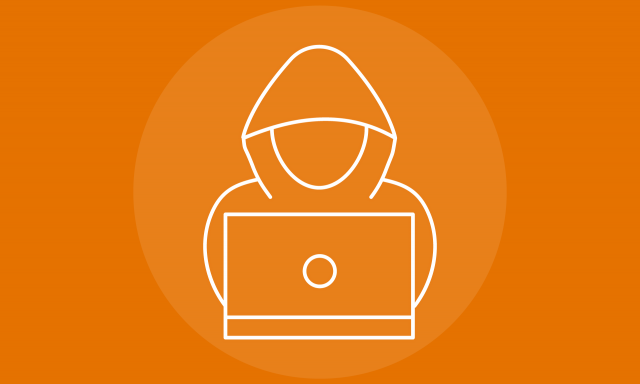

 Article
Article

 Darden experts provide a practical, step-by-step guide to dealing with identity theft, a phenomenon prevalent with the at-risk population of people who are incarcerated. Greg and Tierney Fairchild wrote a case on the matter for the Resilience Education program they founded to educate prisoners.
Darden experts provide a practical, step-by-step guide to dealing with identity theft, a phenomenon prevalent with the at-risk population of people who are incarcerated. Greg and Tierney Fairchild wrote a case on the matter for the Resilience Education program they founded to educate prisoners.

Written by
Identity theft is scary. Experiencing the situation is not only unpleasant, you may have to experience the repercussions for a long time to come.
What happens if it goes on for a long time and you aren’t aware? Some people don’t have the ability to monitor their accounts or receive notices when new accounts are opened in their names.
Imagine this: After 27 months, you have finally finished your prison sentence. In order to begin the process of rebuilding your life and reintegrating into society, you request a credit report to see where you stand. What you learn from the report is that “you” opened several accounts while you were incarcerated, and “you” failed to file a tax return for the income “you” earned during those 27 months incarcerated, which is simply impossible. You are thousands of dollars more in debt than when you went into prison 27 months ago. Your identity has been stolen, and you are not alone; identity theft of prisoners happens much more than you might expect.
While anyone might wake up to find their identity has been stolen, the incarcerated are particularly at risk. Prisoners typically are not allowed to use or monitor their financial accounts, nor do they receive notices of new accounts opened in their names.
According to The Wall Street Journal article outlining the issue, in 2012, “false returns filed with prisoners’ Social Security numbers had surged to about 137,000 ... from 37,000 in 2007.” Identity theft of prisoners is prevalent. Their lack of access to their own financial accounts combined with their vulnerability of having their personal information in the system makes them perfect candidates for an identity thief, and the numbers reflect this.
For prisoners, with the deck already stacked against them upon release in areas such as the job and housing markets, low credit or debt incurred from identity theft while they were incarcerated adds even more barriers to reintegration into society. A bad credit score impacts one’s life in more ways than this, including but certainly not limited to affecting insurance rates, apartment application approvals, employment opportunities, and even personal relationships, as employers, landlords and banks all have access to credit scores.
These, combined with a prison sentence on your record, can all but assure a struggle to start over, which increases the likelihood of re-incarceration.
Darden Professor Gregory Fairchild wanted to ensure that the students in Resilience Education — a prison business education program he co-founded with Tierney Fairchild — were not only alerted to the dangers of identity theft, but also offered tools to recover their financial lives.
A partnership between the UVA Darden School of Business and Columbia Business School, Resilience Education sends MBA volunteer instructors into prisons to teach cases on entrepreneurship, financial capability and business foundations. These topics provide students the skills, confidence and practical knowledge they need for a successful reentry into society. To date, 93 percent of program graduates, formerly incarcerated, have remained out of prison.
An original Resilience Education case offers these four tips to protect yourself against identity theft and five steps to recover from a stolen identity.
For more information, the Federal Trade Commission offers further free resources, including templates for reporting identity theft.
Gregory B. Fairchild, Tierney Fairchild, Christina Black and Liz Ivaniw Jones wrote the case Tentacles (Identity Theft) (Darden Business Publishing).
This article was developed with the support of Darden’s Institute for Business in Society, at which Rebecca Little is a research assistant.
Fairchild is an expert in business strategy, business ethics, leadership and entrepreneurship. He specializes in underserved, overlooked markets and has taught financial literacy to victims of domestic violence, and has launched a program to teach entrepreneurship and business skills to inmates re-entering society.
Fairchild was named one of the 10 Best Business School Professors in the World by CNNMoney/Fortune in 2012 and one of the 50 Best Business School Professors by Poets & Quants. He was the lead investigator in a study of business models and public policy issues in the field of community development finance, an initiative supported by a $850,000 grant from the John D. and Catherine T. MacArthur Foundation.
B.S., Virginia Commonwealth University; MBA, University of Virginia Darden School of Business; M.Phil., Ph.D., Columbia University
Professor Fairchild teaches in the Executive Education program The Women’s Leadership Program.
How to Avoid or Recover from Identity Theft: Resilience Education